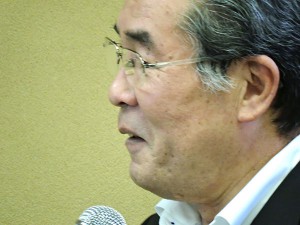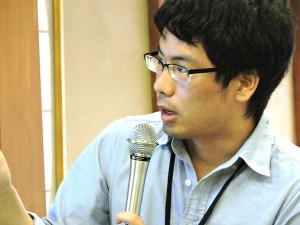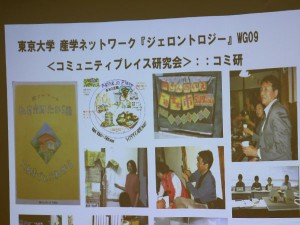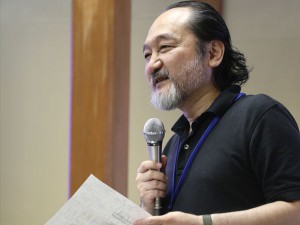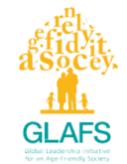 |
GLAFS Training Camp Report
The first GLAFS Training Camp was held on August 2nd and 3rd at Seizanso, a traditional Japanese inn located in central Yugawara. There were 65 participants (1 program officer, 10 faculty members, 4 off-campus faculty members, 2 gerontology network members, 2 people engaged in public administration, 13 Project Assistant Professors, 7 Project Researchers, 14 master course students, 11 doctoral course students, and 1 auditing student).
Although the schedule was full of lectures given by faculty members, guest speakers, and presentations by GLAFS students, course students and staff had a good chance to get to know each other.
The first GLAFS Camp was a resounding success.
|
First Day of Training Camp
|
| 12:00 |
Meeting Time |
| 12:00〜12:10 |
Opening remarks by Prof. Noboru Harata |
| 12:10〜13:00 |
Lecture by Chika Sekine of UDIT |
| 12:10〜13:10 |
Break, move to next venue |
| 13:10〜15:30 |
Research presentation by graduate students (Q&A session included) |
| 15:45〜16:00 |
Introduction of The University of Tokyo Industry-Academia Network “Gerontology” activities |
| 16:00〜17:10 |
Hideki Ota Director of Medical Corporation A.S.M.ss |
| 17:10〜17:30 |
Break and check-in |
| 17:30〜18:30 |
Group Work (House buying / selling game) |
| 18:30〜21:30 |
Dinner, informal social gathering |
| 21:30〜 |
Free time |
|
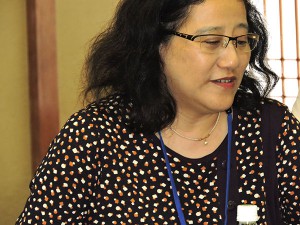 |
After opening remarks by Noboru Harata, Program Director and Vice President of The University of Tokyo, there was a lecture by Chika Sekine, Program Manager and founder of the UDIT, the Universal Design Institute for Information Technology. Ms. Sekine explained the background of the company as well as why UDIT aims to realize universal design in the IT field. |
 |
14 students were divided into two rooms (two groups of seven) and there were seven presentations given in each room. Advice and questions regarding these presentations from faculty members included concepts related to values, research methods, and definitions in terms of gerontology, which are prerequisites for research. |
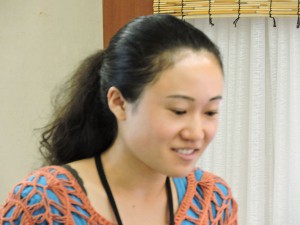 |
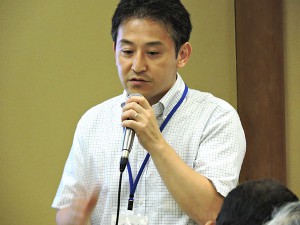 |
Mr. Mikihiro Oida, member of the “Gerontology Housing” group, which focuses on housing for the elderly and acts as a member of the Gerontology Network Working Group, introduced his activities. |
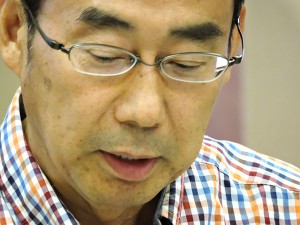 |
The second lecture on the first day of the GLAFS Training Camp was a lecture by Hideki Ohta entitled “Working toward a Comprehensive Long-Term Regional Care System; 24 years of home-delivery medical services. Challenges for town doctors.” Ohta showed, through presentation of relevant examples, how building a regional comprehensive medical care system is essential for realizing home care services in the community. |
 |
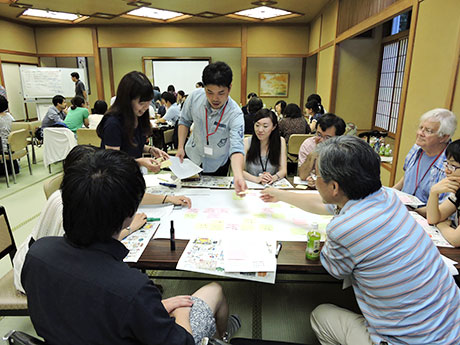 |
 |
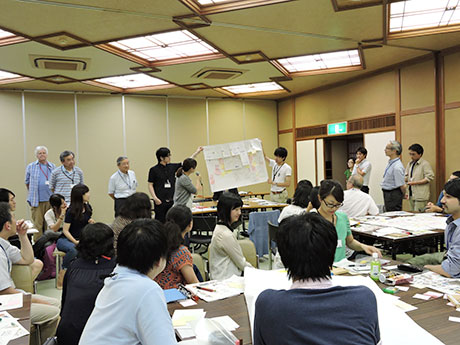 |
 |
 |
| After the series of lectures and presentations, participants were tired. The next session was thus a group work session entitled “Super Aging Societies: Career Development (with house buying/selling game)”. Students, faculty, staff, and guests worked in teams and presented life events as a buying/selling game entitled “From the Cradle to the Grave.” During presentations, each team proposed a unique buying/selling game. The session was an exciting time |
|

